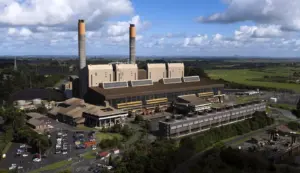New Zealand’s Genesis commits to biomass

It will back local biomass production to reduce reliance on imported coal and decilining gas reserves.
Chief executive Malcolm Johns said Genesis will work with local investors and forest owners to facilitate domestic production, and provided long-term supply agreements.
"We are committed to using biomass to reduce the need for imported coal at Huntly Power Station and are focused on building a domestic supply chain with key stakeholders. Government support for this is welcomed," he said.
Genesis' calculations indicate that around 300,000 tonnes of biomass will be required annually for Huntly Power Station by 2028 for the fuel to become a deep energy storage option.
"Biomass production technology is scaling up internationally with the largest operation currently producing around 120,000 tonnes per year," he added.
Huntly’s Rankine units currently burn a mix of coal and gas. Following a successful burn trial of imported biomass through a Rankine in 2023, it appointed a biomass business development manager, Dave Binnie, who has been researching biomass production technologies and investment overseas and exploring connections with potential fibre suppliers in New Zealand.
"We have recently had teams visiting new biomass production and generation facilities in south-east Asia. Back home we are encouraged by the level of enthusiasm among iwi, the forestry sector, potential capital partners and now the government to work with us in achieving our goal," added Johns. "Prospects such as opening Crown land to facilitate short cycle biomass fibre growing of eight to nine years are particularly exciting."
He continued: We welcome the government’s focus on standing up a domestic biomass industry, and look forward to working with the Ministerial bioenergy taskforce to ensure there are no unnecessary barriers to bringing this exciting opportunity to life to support New Zealand’s energy security."
















